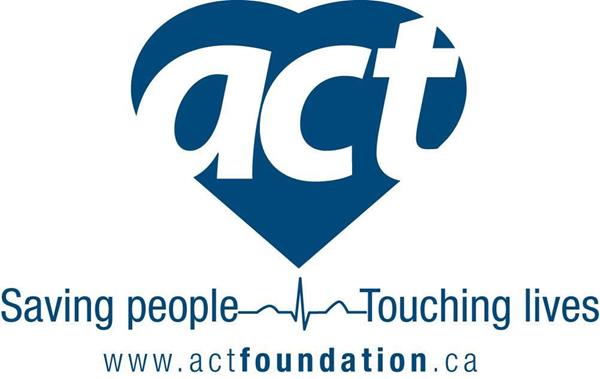The Advanced Coronary Treatment (ACT) Foundation announced today it has completed Phase 1 of its Opioid Overdose Response Training (OORT). As a result, 2,300 teachers from 830 high schools in Canada are now equipped to teach their students in how to respond to a suspected opioid overdose.
The training allows teachers to teach students:
- What are opioids and how do opioid overdoses happen
- What is Naloxone and how does it work
- Recognizing a suspected opioid overdose
- Responding to a suspected opioid overdose, including calling 911 quickly, performing CPR if needed, and giving nasal Naloxone spray
The Opioid Overdose Response Training module, launched in 2022, is an enhancement to the ACT Foundation’s successful high school cardiopulmonary resuscitation (CPR) and automated external defibrillator (AED) program, free for high schools.
Thanks to the number of teachers trained with the OORT so far, more than 160,000 students each year could be empowered to respond to a suspected opioid overdose as part of their CPR and AED training in high schools.
The ACT Foundation received a contribution from Health Canada’s Substance Use and Addictions Program (SUAP) from January 2021 to March 2024. This contribution was in support of the development and implementation of the module on Opioid Overdose Response Training in Canadian provinces where the ACT Foundation has widely established the High School CPR and AED Program.
According to the Public Health Agency of Canada, 5,975 apparent opioid toxicity deaths were reported from January to September 2023. The Canadian Centre on Substance Use and Addiction notes the majority (94%) of opioid overdose deaths happen by accident, and young Canadians aged 15 to 24 are the fastest-growing population requiring hospital care from opioid overdoses.
“The landscape of emergency response is changing in Canada due to the increase of opioid overdoses and, as a society, we all have a role to play,” says Sandra Clarke, the ACT Foundation’s Executive Director. “Enhancing ACT’s High School CPR and AED Program with opioid awareness and response training is an important step in empowering youth to respond to life-threatening emergencies. We are happy for the achievement of this milestone, but we are far from being done. Yes, Phase 1 is completed, but we want to reach more students. Our trainings need public and private partners committed to help ACT to expand its programs to more high schools in Canada.”
“The opioid crisis is a complex issue and causes many of the opioid-related harms and deaths. ACT’s response to this crisis provides high school teachers with the tools to add the Opioid Overdose Response Training to the current CPR training, enhancing students’ lifesaving toolbox. Recognizing a suspected opioid overdose and knowing how to respond can help save lives,” says Dr. Michael Austin, ACT’s National Medical Director.
ACT’s overall goal is to see every high school student across Canada graduate with the confidence, skills, and knowledge to save a life. To help achieve this goal, ACT receives the financial support from private and public organizations who believe in the positive impact ACT can play in Canada’s society.
“As a founding partner of the ACT Foundation, we are proud of the incredible impact being made to empower youth across Canada with critical life-saving skills, including the Opioid Overdose Response Training,” says Gaby Bourbara, President, AstraZeneca Canada. “On behalf of AstraZeneca Canada, we congratulate the ACT Foundation for achieving today’s milestone, helping to build stronger, healthier communities.”
“On behalf of all the staff at Amgen Canada, I want to congratulate the ACT Foundation for the completion of Phase 1 of its Opioid Overdose Response Training. ACT is a pioneer in establishing free CPR and AED training in high schools in Canada and I am confident that this announcement is just the beginning of the expansion of ACT’s footprint when it comes to supporting youth,” mentions Ugur Gunaydin, Vice-President and General Manager, Amgen Canada.
